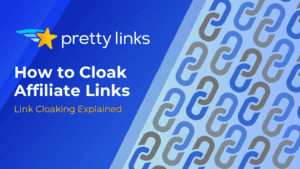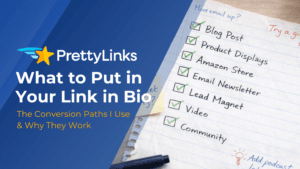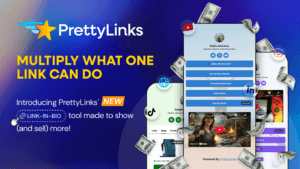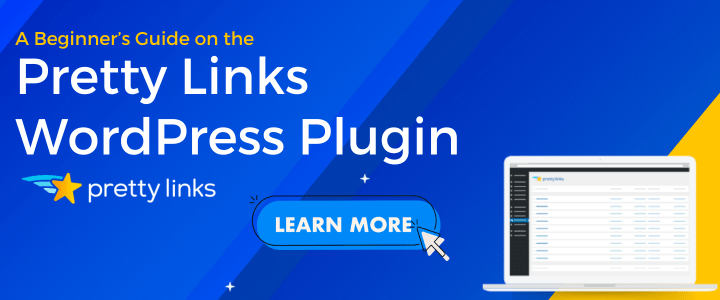Contents
Links that lead potential followers and customers to your website are key in helping you expand your reach and brand yourself as an industry expert. However, standard links are unwieldy and difficult to track once they’re separated from your site or social media profiles.
Link shorteners can help solve these problems. As a main benefit, they make sharing and branding links easy, which supports your brand expansion and trust building. You can also use link shorteners to retain control over your links. As a consequence, you have greater flexibility of use.
In this post, we’ll look at three lesser-known benefits of link shorteners and how each one can help your website. In addition, we’ll show you how to get the most from each link-shortening possibility, including with the use of PrettyLinks. Let’s get started!
1. Fix Broken Links More Easily
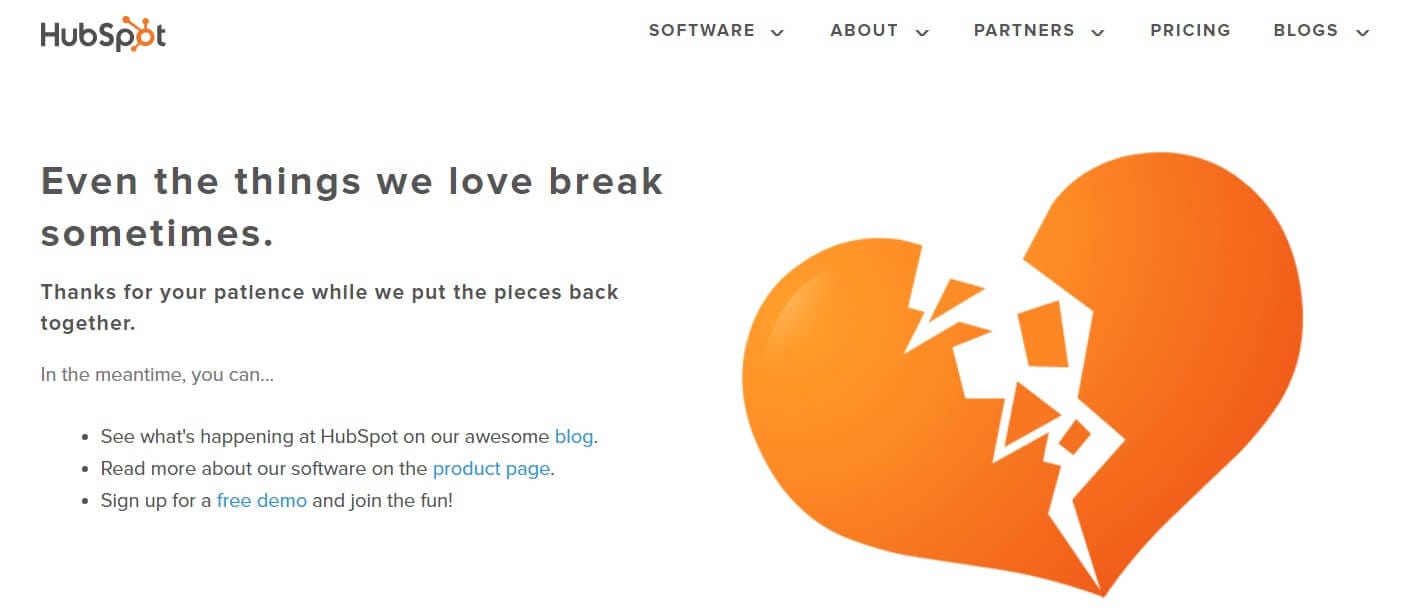
A 404 error page, such as HubSpot’s, is an indication that a page has been removed from the destination site, or moved to a different URL.
Broken links are those that no longer work, usually due to the removal (or movement) of the linked URL. Fixing them helps you continue attracting visitors to your content. If the link is offsite, fixing it can be difficult. However, if you used a link shortener when adding the URL, the fix is quick and easy.
Fixing broken links helps ensure that your content stays relevant. In addition, it keeps your content available for readers. As a result of not fixing such links, your business could seem outdated, which can lead to a loss in visitors and damage your brand’s credibility.
Fortunately, fixing broken links with PrettyLinks is simple! First, navigate to PrettyLinks > PrettyLinks in your WordPress dashboard, and select the broken link from the list. You’ll be brought to the Edit Link page. From here, simply go to the box entitled Target URL:

Click within the box, highlight the URL, delete it, then paste in the new target URL. Click Update, and your broken pretty link is now fixed!
2. Create Homogenous Shortlinks for Social Media
 A branded shortlink, such as Mashable’s, can be easily used to create homogenous shortlinks for all of your social media profiles.
A branded shortlink, such as Mashable’s, can be easily used to create homogenous shortlinks for all of your social media profiles.
Consistency in branding can make your brand more trustworthy and valuable. In fact, only 19% of companies are currently creating consistent content, even though brand consistency has been shown to increase revenue by 23%. Being consistent in your branding across social media gives you a huge leg up on your competition.
As you create shortlinks for your social media profiles, follow these tips to be as effective as possible:
- Use a brand-focused name URL. For example, mybrand.com/facebook or facebook.com/mybrand.
- Keep the link style consistent. As you create shortlinks for each of your social media profiles, keep the style consistent. For example, mybrand.com/facebook, or mybrand.com/twitter. This makes it easier for followers to find you on other platforms.
- Try to match your brand’s social media username. Create shortlinks that match your brand’s already-established social media username. For example, @mashable could use mashable.com/facebook and mashable.com/twitter.
Consistency in your social media presence has a direct impact on your brand’s image – use it wisely! Finally, build consistency and trust with homogenous shortlinks, and keep engaging your followers and customizing your content for each platform.
3. Track Your Website’s Conversion Goals
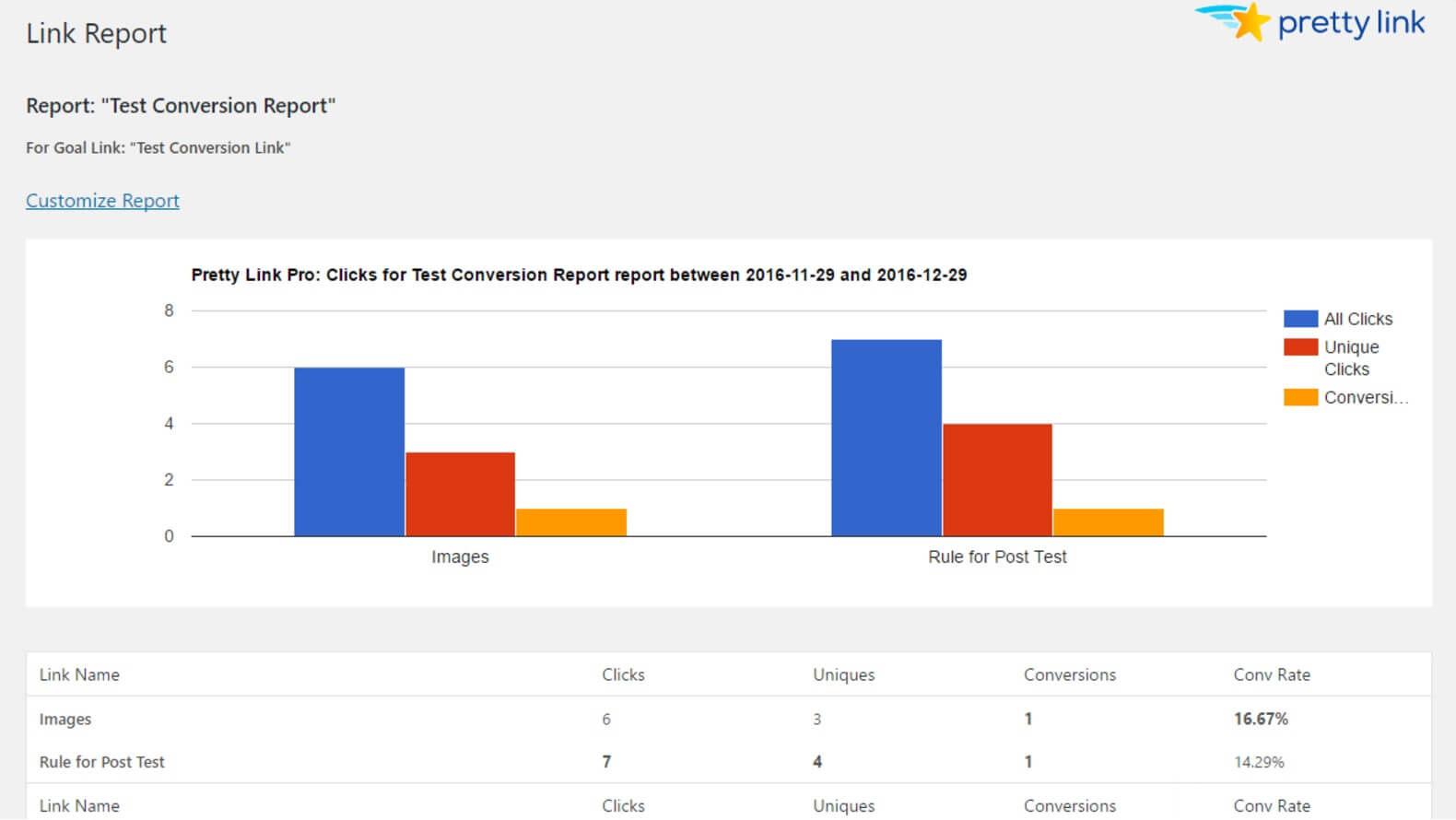 A conversion report can help you to track progress so you can further tweak your goals and adjust your strategies.
A conversion report can help you to track progress so you can further tweak your goals and adjust your strategies.
Whether you’re a marketer hoping to make sales, or a blogger looking for newsletter subscribers, conversion goals matter. However, without tracking these goals, you won’t make much headway.
The very point of setting goals is so you can use them as an endpoint. Tracking conversion goals helps you better understand your site’s performance, so you have the information to improve your current strategies.
With PrettyLinks, this process takes just a few simple steps. To get started, you’ll need to have your Tracking Style set to Extended Tracking (which you can find under Options > Reporting). Next, go to PrettyLinks > Pro Reports. Click Add a PrettyLinks Report, and you’ll find yourself at the Edit Link Report screen:
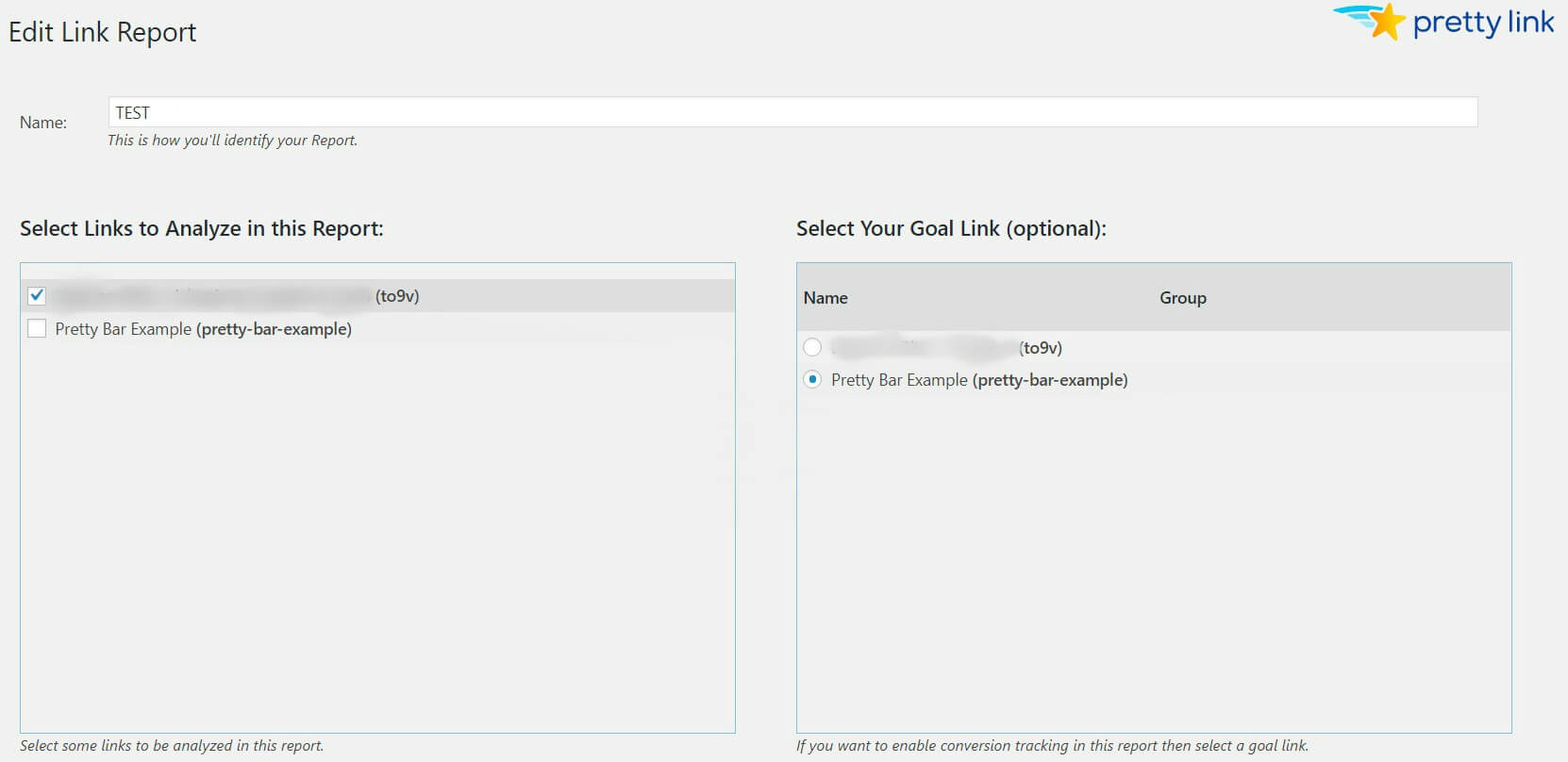
To track conversions, you’ll need to add two different pretty links to the report: Your landing page under Select Links to Analyze in this Report, and your goal page (for example, a newsletter signup form) under Select Your Goal Link.
When ready, click Create to generate a report. You can further customize what you see by changing the data range of the report, or altering the pages you’ve specified. You can then tweak your current conversion strategies based on the results provided, using them to inform and improve your site’s content, social media engagement, and even link building strategies.
Conclusion
While link shorteners have the obvious benefits of shortening and branding website links, they also prevent broken links, help you build brand consistency, and assist you in reaching conversion goals. When used to their fullest extent, you can ensure that you’re getting the most from your links (both on-site and off-site).
In this post, we’ve highlighted three lesser-known benefits of using link shorteners. To quickly recap, a link shortener can enable you to:
- Fix broken links.
- Create homogenous shortlinks for social media.
- Track conversion goals.
Do you have any questions about using a link shortener, such as PrettyLinks, on your website? Let us know in the comments below!

